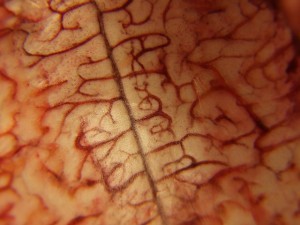
The number of industrial chemicals known to cause neurodevelopmental disabilities among children — such as autism, attention-deficit hyperactivity disorder (ADHD) and dyslexia — has doubled from six to 12 over the past seven years, according to a new study published last Friday in the journal Lancet Neurology. The study also found that the list of recognized human neurotoxicants — chemicals known to injure the adult human brain but have not yet been linked definitively to neurodevelopmental disabilities in children — increased from 202 to 214 over that same seven-year period.
Neurodevelopmental disabilities, including autism, attention-deficit hyperactivity disorder, dyslexia, and other cognitive impairments, affect millions of children worldwide, and some diagnoses seem to be increasing in frequency. The review published in The Lancet Neurology journal, says the news is so troubling they are calling for a worldwide overhaul of the regulatory process in order to protect children's brains.
“We know from clinical information on poisoned adult patients that these chemicals can enter the brain through the blood brain barrier and cause neurological symptoms,” said Dr. Philippe Grandjean.
“When this happens in children or during pregnancy, those chemicals are extremely toxic, because we now know that the developing brain is a uniquely vulnerable organ. Also, the effects are permanent.”
Dr. Philip Landrigan at Mount Sinai School of Medicine in New York and Dr. Philippe Grandjean from Harvard School of Public Health in Boston, authored the review.
Those five are lead, methylmercury, arsenic, polychlorinated biphenyls, …
Landrigan is recruiting pregnant women for a new study that will test for chemical exposures. He said it's inevitable that over the next few years more chemicals will be added to the list. His concern? “The ability to detect these chemicals lags behind the chemical industries' ability to develop new chemicals and put them into consumer products. That's why we need new legislation in this country to close that gap.”
“We are lagging behind,” Grandjean said. “And we are putting the next generation of brains in danger.
Please Read this Article at NaturalBlaze.com





Leave a Reply